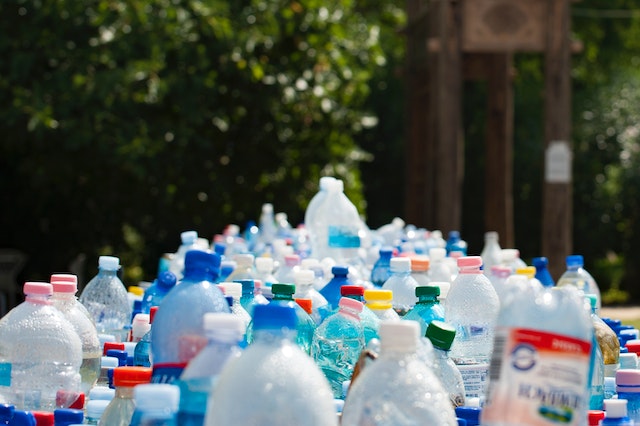
In an era when the environmental impact of our choices has never been more apparent, adopting sustainable practices in our daily lives has become a pressing need. The plastic pollution crisis, climate change, and dwindling natural resources are compelling us to rethink our consumption habits and find eco-friendly alternatives. In this article, we explore ten simple yet powerful ways to reduce plastic waste, a critical aspect of sustainable living. From embracing reusable bags and water bottles to saying no to disposable cutlery, each of these strategies empowers individuals to make a positive contribution towards a cleaner, greener future. By incorporating these practices into our routines, we not only reduce our ecological footprint but also inspire positive change within our communities and around the world.
Bring Your Own Reusable Bags:
One of the easiest and most effective ways to reduce plastic waste is to carry reusable shopping bags. By bringing your own bags when you go shopping, you can eliminate the need for single-use plastic bags that often end up in landfills or as litter in our environment. These reusable bags are not only durable and convenient but also come in a variety of stylish designs, making it a simple yet fashionable choice for eco-conscious consumers.
Use a Reusable Water Bottle:
Investing in a reusable water bottle is a small change that can have a big impact on reducing plastic waste. Single-use plastic water bottles are a major contributor to plastic pollution. By switching to a reusable bottle made from materials like stainless steel or glass, you not only help decrease the demand for plastic bottles but also save money in the long run while staying hydrated on the go.
Ditch Disposable Cutlery and Straws:
Disposable plastic cutlery and straws are often used for just a few minutes but can persist in the environment for hundreds of years. To combat this, carry your own reusable cutlery set and eco-friendly straws made from materials like stainless steel, bamboo, or silicone. This simple change in your dining habits can significantly reduce the amount of plastic waste generated during meals.
Opt for Cloth Napkins:
Swapping out disposable paper napkins for cloth napkins is an eco-friendly choice that adds a touch of elegance to your dining experience. Cloth napkins are not only washable and reusable but also come in various colors and patterns to suit any occasion. By making this switch, you’ll help reduce paper waste and minimize the environmental impact of your meals.
Say No to Plastic Utensils:
When ordering takeout or food delivery, one often receives plastic utensils and condiment packets by default. To reduce this unnecessary plastic waste, simply request that restaurants exclude these items from your order. By doing so, you can enjoy your meal with your own reusable utensils and condiments at home, preventing countless single-use plastics from entering landfills.
Choose Bulk Shopping:
Opting for bulk shopping is an effective strategy to cut down on plastic packaging waste. Many grocery stores and markets offer products like grains, nuts, and spices in bulk bins. Bring your own reusable containers or bags to fill with these items, eliminating the need for individually wrapped or plastic-packaged goods. Not only does bulk shopping reduce plastic waste, but it also often saves you money in the long run while promoting a more sustainable lifestyle.
Buy in Bulk:
Buying products in larger quantities or with minimal packaging can significantly reduce your plastic waste. Look for items like cleaning supplies, pantry staples, and personal care products in larger sizes or in packaging made from alternative materials, such as glass or cardboard. This practice not only reduces plastic waste but also cuts down on the number of trips you need to make to the store.
Make Homemade Cleaners:
Creating your own cleaning products from natural ingredients is an eco-friendly alternative to purchasing cleaning solutions in plastic bottles. Ingredients like vinegar, baking soda, and essential oils can be used to make effective and non-toxic cleaners for various household tasks. By making this switch, you not only reduce plastic waste but also create a healthier and more environmentally friendly living space.
Refuse Plastic Straws:
Taking a stand against single-use plastic straws is a simple yet impactful way to combat plastic pollution. When dining out, politely decline plastic straws or request alternatives like paper, glass, or metal straws. You can also carry your own reusable straw with you to use whenever needed. By refusing plastic straws, you help prevent these small but pervasive plastic items from ending up in our oceans and harming marine life.
Participate in Cleanups:
Joining or organizing community cleanups is a proactive way to address plastic pollution. These events bring people together to remove plastic waste from parks, beaches, and natural areas. By participating in cleanups, you directly contribute to the reduction of plastic litter in the environment and raise awareness about the importance of responsible waste disposal. Your efforts can make a significant positive impact on your local community and the planet as a whole.